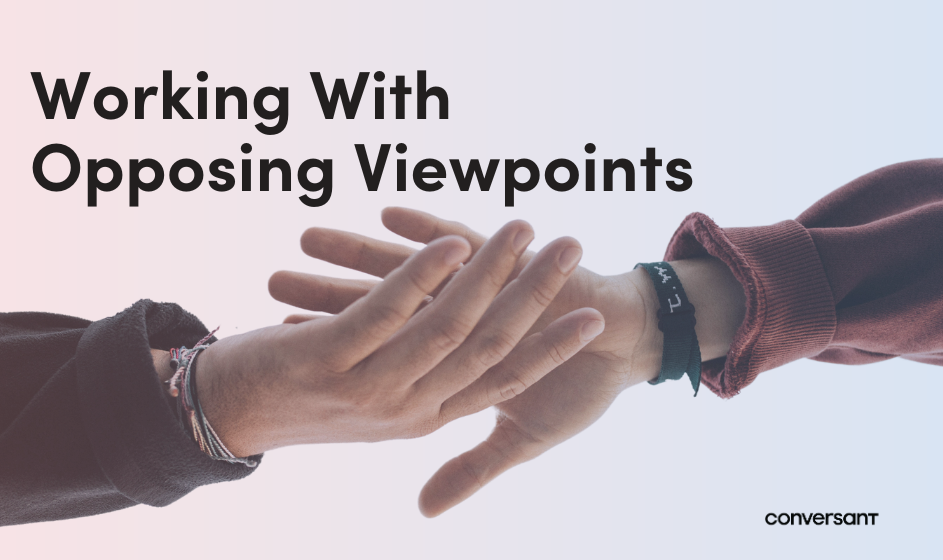We all know political division in our country is at an all-time high. Especially in this election year, tensions are at a fever pitch. It’s more tempting than ever to draw quick conclusions about someone when we spot the little American flag on their sleeve or the “Coexist” sticker on their laptop. They’re either on “my side” or “the other side.” As my colleague Emma Rose Connolly stated in a recent blog, “There’s a mood of fear, cynicism, combativeness, frustration, and anger that’s nearly inescapable. It’s impacting our day-to-day lives, our work environment, and our outlook on the future. And the worst part – none of it feels like it’s within our control.”
While this level of tension may be higher than most of us are used to, conflict and division are as old as the human experience, as well as methods to manage them. At Conversant, we focus on the social side of organizations—and specialize where areas of conflict and opposing interests are causing disruption or stagnation (executives at cross purposes, department heads competing for resources, etc.). The key to initiating any kind of meaningful change within a system—political, corporate, or otherwise—is to guide people with opposing purposes, concerns, and circumstances toward a point of alignment. In order to do that, we start with a deceptively simple but powerful tool called the Intersection Model.
The axioms of the Intersection are:
- All humans have purposes concerns, and circumstances
- If someone perceives that you are unaware of or disrespectful of his or her purposes, concerns, and circumstances, he or she will consider you a threat. And, he or she will actively avoid, resist, and undermine any significant threat. This creates waste.
- If someone perceives that you are aware and respectful of his or her purposes, concerns, and circumstances, he or she will join you in conversation. He or she will share information, coinvent solutions, and move into action. This creates value.
Most of us instinctively engage conflict by trying to convince the other person to think what we think, or we attack the flaws of their position, or even see how we can manipulate them to get what we want (especially when there is a power imbalance). But using the Intersection approach, the first step in getting people toward alignment is getting clear about each person’s point-of-view, then finding mutually observable and agreed-upon facts at the intersection shown above. The intersection, therefore, is not a complete reconciliation of differences; it is simply an illumination of common stakes. And when common stakes are clearly revealed, there is new ground for moving forward. Even enemies can become allies (at least regarding the subject at hand). In the 1980’s, Speaker-of-the-House Tip O’neil and President Ronald Reagan, leaders of opposing parties, consistently sought common ground in order to pass legislation to keep the country moving forward.
There is a lot more to “the intersection,” but here I’ve offered the gist. And again, while it sounds deceptively simple, this model has served as the bedrock of our work with high-stakes multi-million-dollar initiatives in large companies including Hewlett Packard, IBM, Coca-Cola, Lockheed Martin, and many others.
I hope models like this could help unlock a bit more cooperation in our hyper-charged political environment. Say what you want about large corporations, at some point they at least have to acknowledge and work with facts. In today’s political environment that rewards divisiveness for its own sake, facts are falling to a second-tier status. That said, there are thankfully still some good people with honest and sincere intentions in Washington to work toward a better future for all of us, and maybe for them, models such as the Intersection could help move things forward.



